Professional Year Program: Ethical Dilemma Case Study Analysis
VerifiedAdded on 2022/10/08
|5
|1065
|59
Case Study
AI Summary
This case study analyzes an ethical dilemma faced by Maureen, an employee in a government agency dealing with drug and alcohol abuse. Maureen is tasked with compiling a report using sensitive client data, including names and addresses. The core dilemma revolves around whether Maureen should work strictly within the agency's environment or at home to meet deadlines. The analysis explores the consequences of both options, focusing on data security, adherence to the ACS code of conduct, and the potential risks of information leaks. Working strictly within the agency minimizes the risk of data breaches and aligns with several ACS values, but might lead to missed deadlines. Conversely, working at home allows for meeting deadlines but poses significant risks to client data privacy and violates multiple ACS values, potentially damaging the agency's reputation and legal standing. The solution recommends Maureen work strictly within the agency's environment to uphold ethical standards and protect sensitive client information, prioritizing long-term benefits and compliance with professional conduct guidelines.
1 out of 5
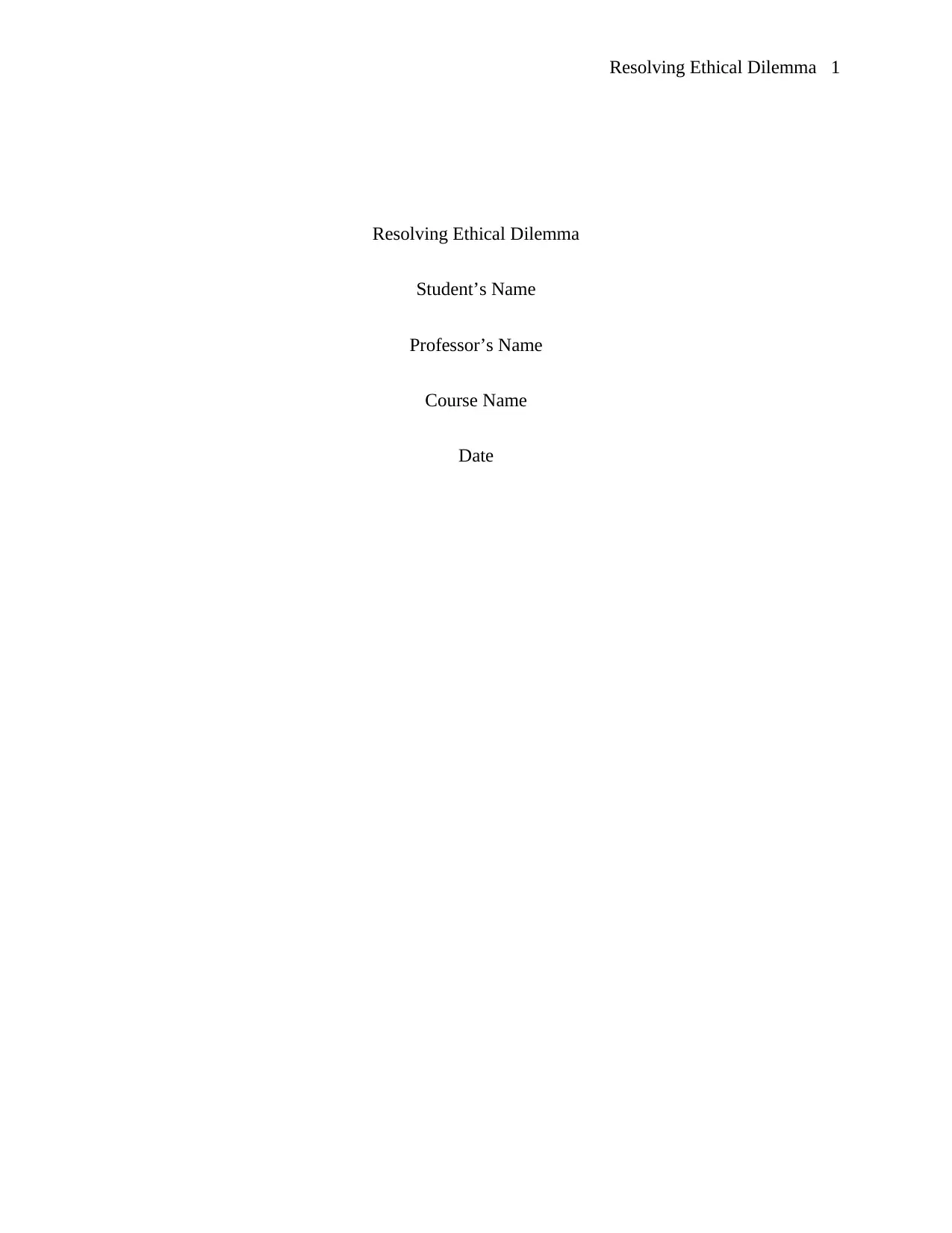
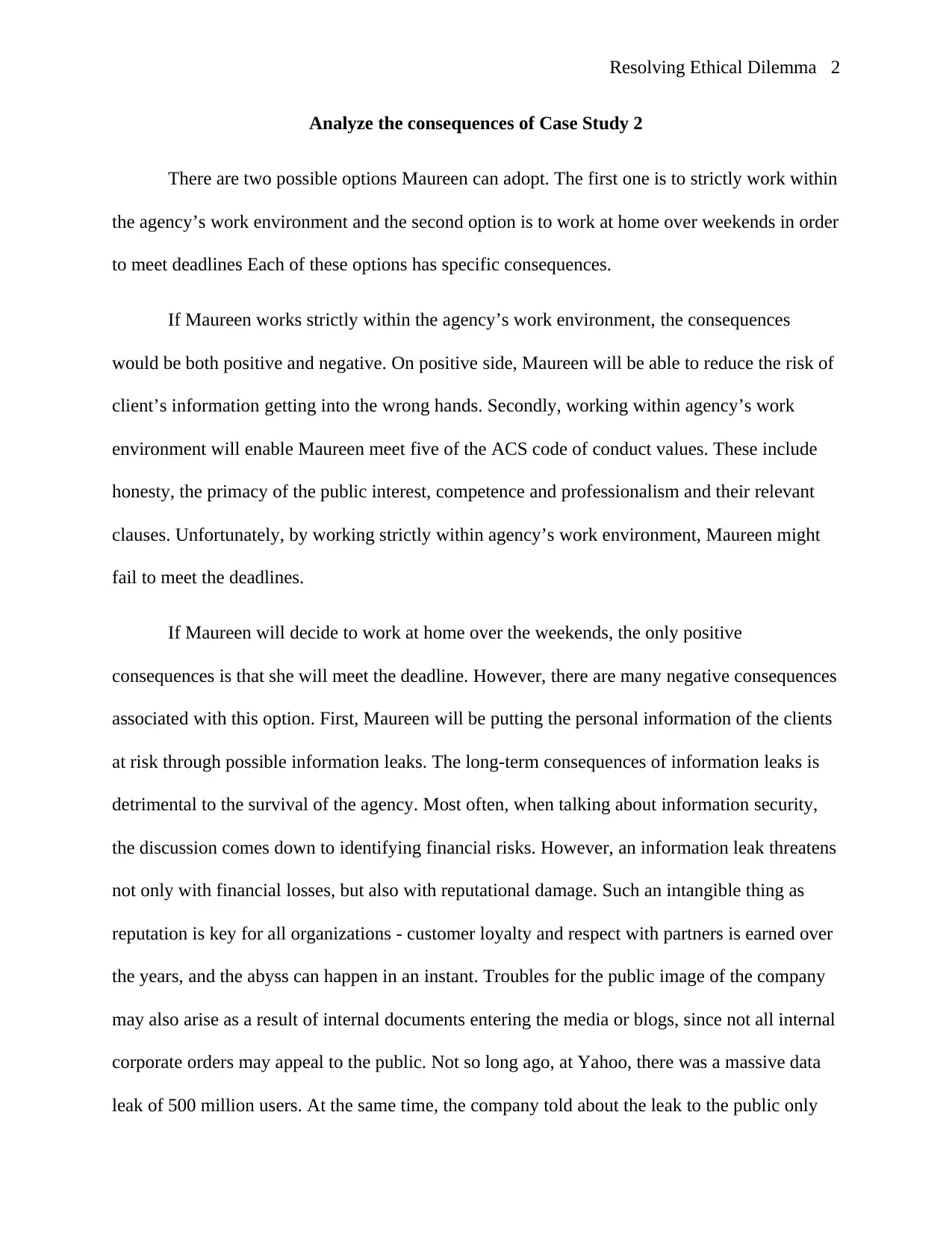
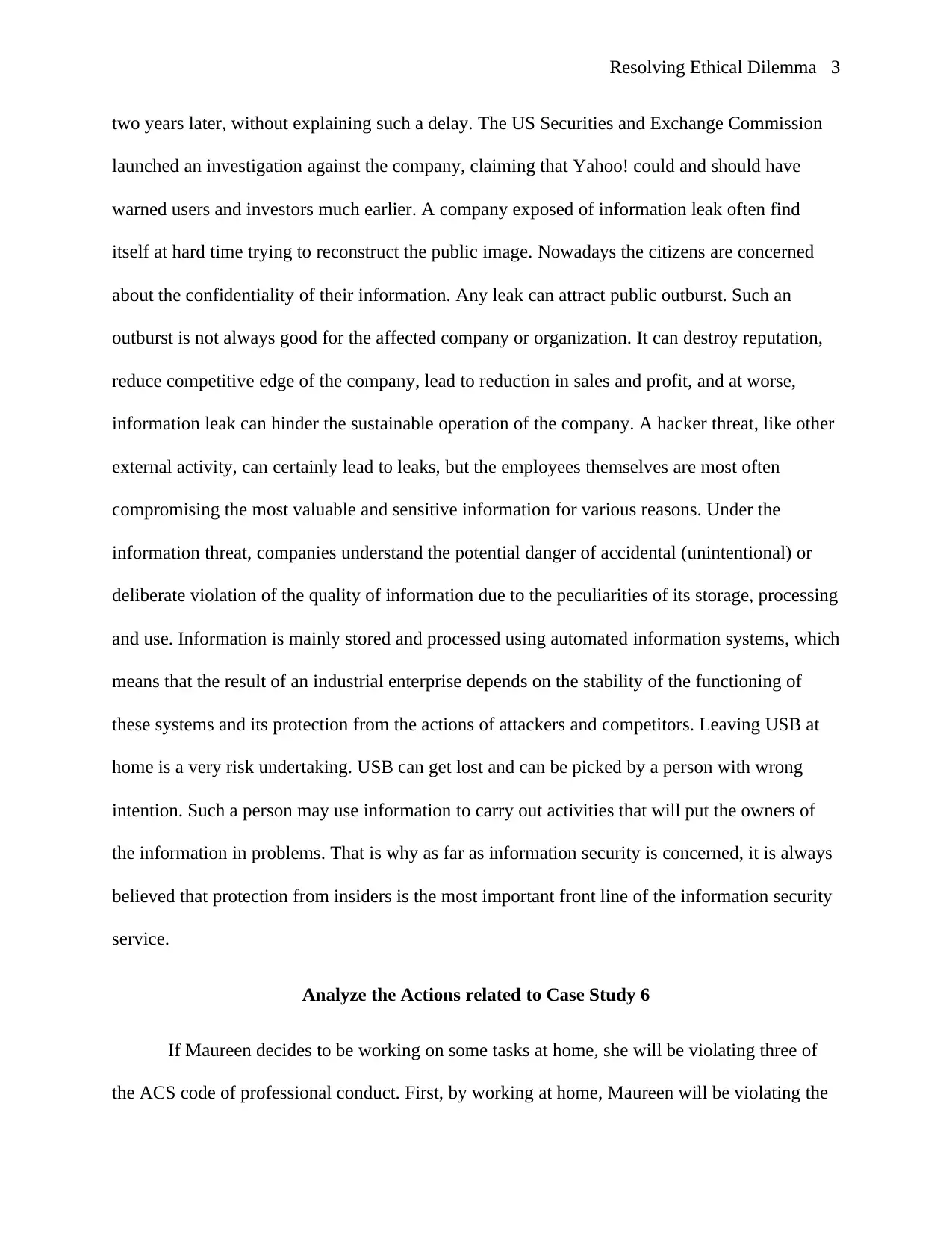

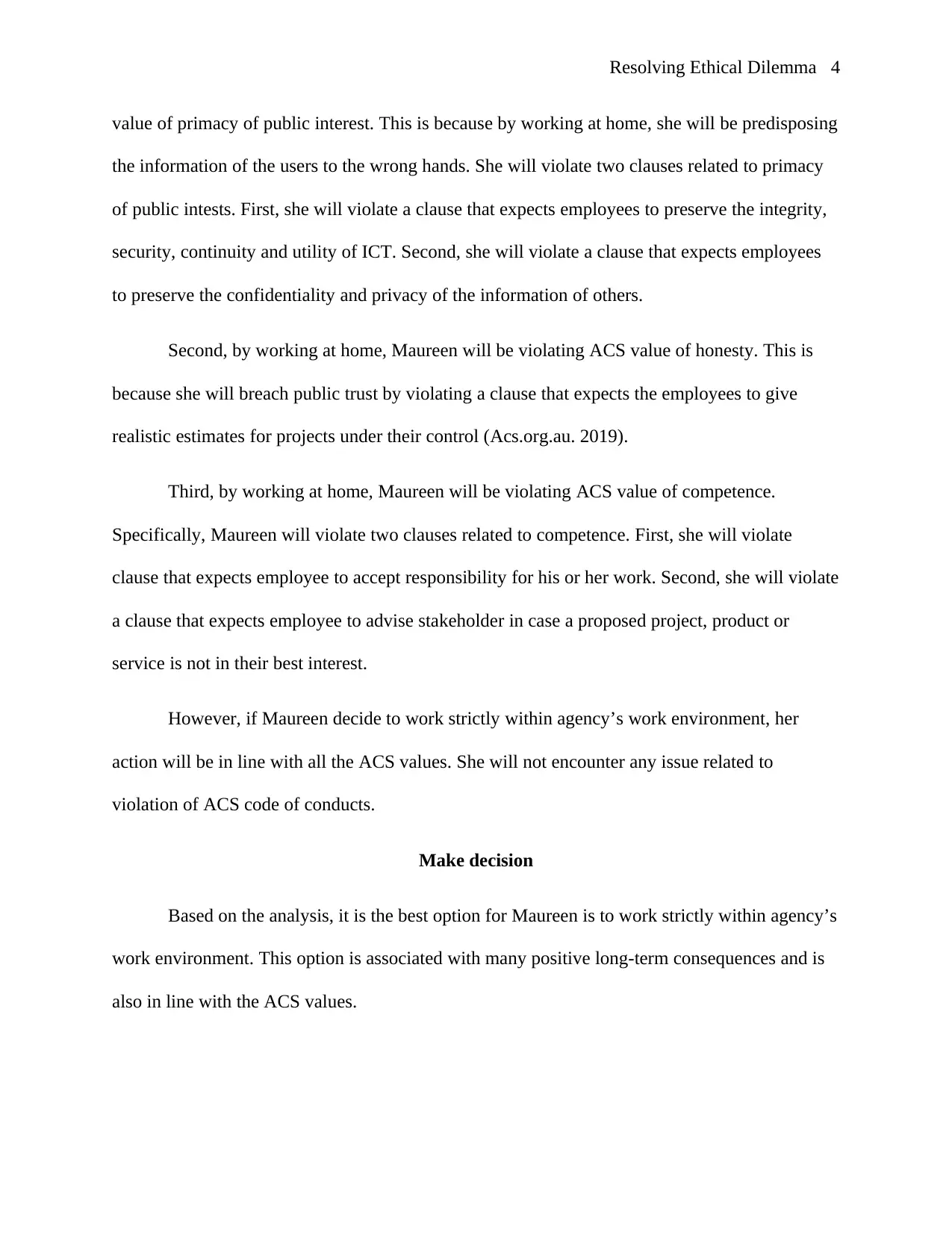
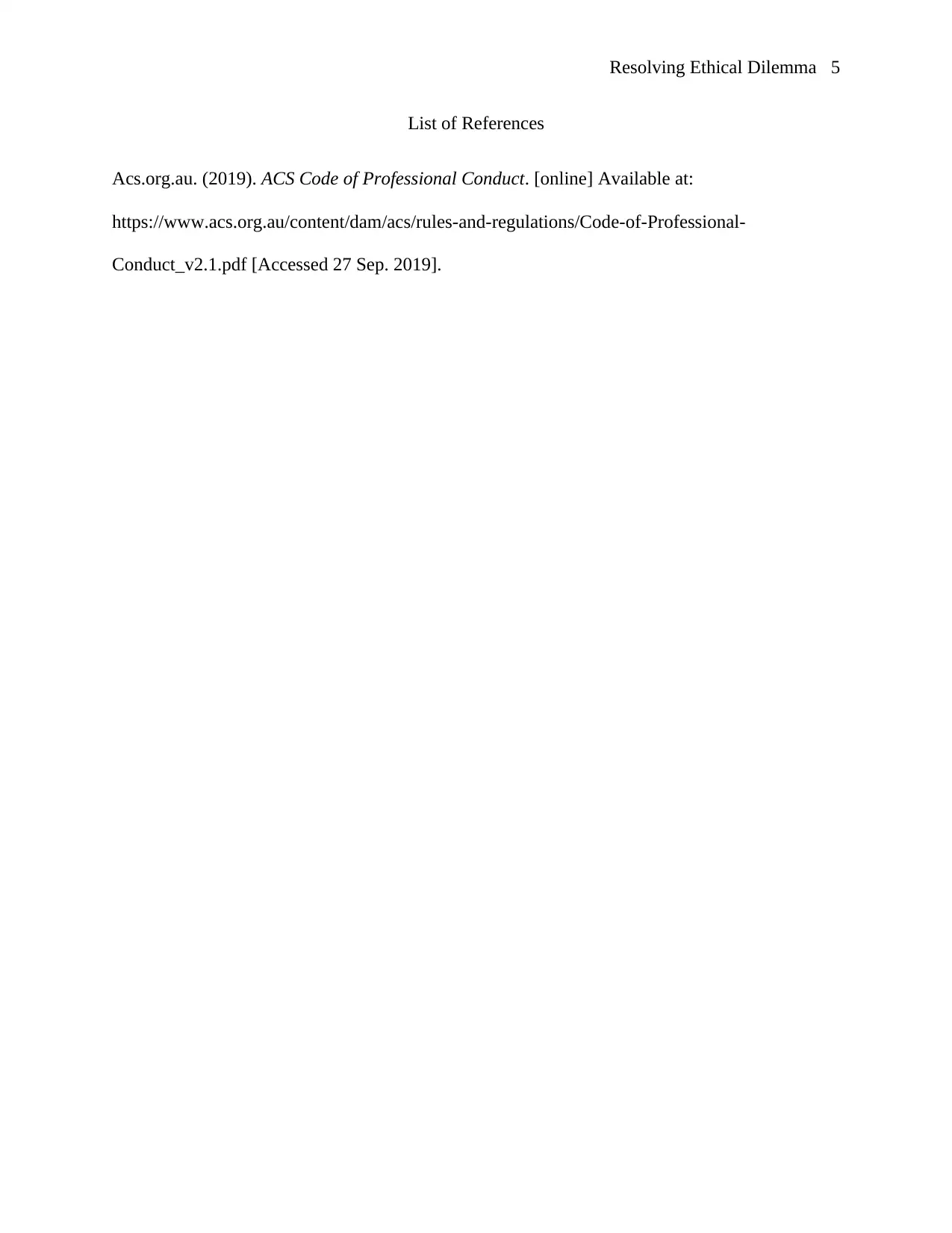


![[object Object]](/_next/static/media/star-bottom.7253800d.svg)